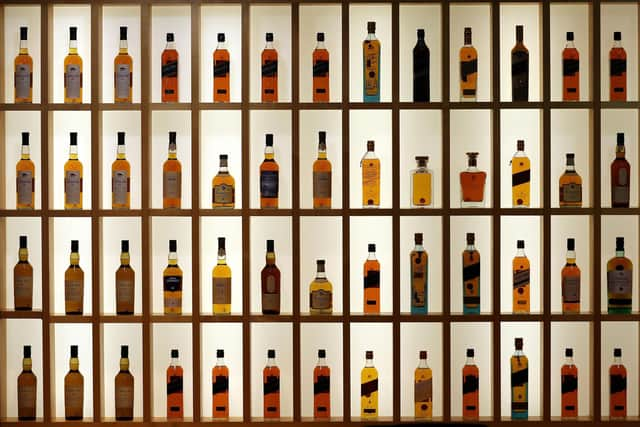Tax duty, deposit return scheme and delayed plans on Scotland alcohol adverts damaging spirits industry, Christine Jardine warns
The Liberal Democrat MP labelled the industry “iconic”, and stressed scotch whisky exports were worth £2.1 billion, with tourism valued at £6bn a year.
Ms Jardine claimed the controversial deposit return scheme (DRS) and the Scottish Government’s original proposals around restricting alcohol advertising would deeply damage the sector, in turn hurting hospitality and tourism.
Advertisement
Hide AdAdvertisement
Hide AdHer claims came as First Minister Humza Yousaf this week announced a six-month delay to the DRS launch and said Government officials would now go "back to the drawing board" on alcohol advertising proposals.


Ms Jardine said the proposed ban had come at a time tax duty was already rising on Scotch whisky, in a move labelled a “hammer blow” by the industry.
The Edinburgh West MP said: “There’s also on top of that the deposit return scheme. The producers would say that premium bottles are not contributing to the issue of littering. If you spend £40 on a bottle, you are not dropping it on the street.
“The bottles are exported, they can’t prove that they’ll be recycled, they haven’t thought through this deposit protection scheme properly.
“There’s also going to be a consultation later this year on banning advertising. That is going to wreak havoc on sport, particularly rugby and football. Undermining or damaging our drinks industry in Scotland has wider repercussions because it hits tourism and the hospitality sector.”
Alison Douglas, chief executive of Alcohol Focus Scotland, this week called on the Government to “put public health before industry profits”.
But Ms Jardine, the Lib Dem women and equalities and Scotland spokesperson, said tourism made up 5 per cent of Scotland’s GDP and, while there were health concerns around alcohol, the proposed restrictions had been too damaging.
She said: “You are talking about a huge impact if the UK Government’s historically high tax stays the same. We’ve got 60 gin producers, and it’s grown around 69 per cent in the years between 2010 and 2018. Seventy per cent of the gin produced in the UK is made in Scotland.
Advertisement
Hide AdAdvertisement
Hide Ad“All these industries are providing a massive boost to Scotland’s economy and in terms of jobs, but they’re going to be hit very hard. There is a health aspect to take into account, but are these premium drinks the ones causing a problem?
“It’s a triple whammy for tourism, hospitality and Scottish jobs all being affected, not just whisky, but all the producers are affected by the combination of tax, the DRS and the ban on advertising.”
The Scottish Government insisted the comments were not representative of how the scheme would work.
A spokesperson said: “Scotland’s deposit return scheme will reduce litter on our streets, massively increase the recycling of drinks containers and help meet our net zero ambitions.
“This week the circular economy minister announced a new package of measures to further support businesses, particularly small drinks producers, to participate in the scheme, and delayed the start date till March 1, 2024. This gives businesses ten months to prepare.
“As the First Minister has said, he wholeheartedly supports the aims of the recent consultation on alcohol advertising – particularly to reduce the harm caused by alcohol to young people – but is keen to take a fresh look at the issue, balancing that aim with careful consideration of the impact restrictions may have on business.
“We will be reflecting on the feedback we received from stakeholders during the recent ministerial roundtables and will analyse the public consultation responses to understand the views of those that responded.”
Comments
Want to join the conversation? Please or to comment on this article.
